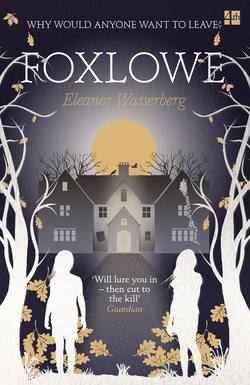Читать книгу Foxlowe - Eleanor Wasserberg - Страница 12
5
ОглавлениеSee, Blue would understand what I did, because like all of us, once she was old enough she’d learn about the Time of the Crisis. The Time of the Crisis isn’t Blue’s story, but mine. Freya would tell it to me after a Spike Walk. She’d be lying next to me, stroking my hair, kissing the broken skin. Freya’s breath in my ear was just soothing sounds like the wind over the roof tiles, but slowly she formed words that wrapped themselves around me like a familiar blanket. I could tell it off by heart even before I knew what the words meant. It’s Freya’s voice, not mine, but I can’t help that: the Time of the Crisis was her story first.
The Time of the Crisis must always be remembered, so we are vigilant, and learn from our mistakes. This was the time before the rituals became solid and clear, and we were trying to decide how to live best.
It began with Green. Green came to Foxlowe very early one morning, while the stars were still out, and the dogs, the goats, even the chickens were still sleeping. It was the Bad’s favourite hour, black and cold as stone. So when Green came, it latched onto her easily, red and slimy, like organs ripped out. Freya knew it by the glisten of the blood and the way it screamed. It filled the house, and we all shrank from it, driving some to pack and become Leavers, the cries so full of spite that they ran away into the night.
Freya hoped that the Bad would leave once the sun became stronger, but instead it screamed and howled and scratched at her, it gnawed at her breast, it made her bleed. No one wanted to hold it, no one wanted to touch it. It was shut away in the attic until we could decide what to do. Freya knew it was the Bad, but the others were too afraid to say it. We survived it by wrapping it tight so it couldn’t rage too hard, and not looking it in the eye, or touching it too much.
Freya felt the Bad all over the house. It made her weak. It made her cry and feel tired even when she hadn’t done any work. The others tried to help, with food, and chores, and making things for baby Green, like shadows on the walls with their hands.
Things got worse. The rush of Leavers after Green’s birth had weakened us. Freya was seeing things that could not be real: her mother standing at the foot of the bed, her father holding a small child’s hand. There were whispers in corners. Secrecy. The Bad began to swell and grow in potency, inside the walls.
It was Richard who suggested we take baby Green out to the Standing Stones for Solstice. The group gathered up blankets and bottles of moonshine and set out with the baby wrapped in a quilt. Freya followed, hoping the air and light would deliver her strength. At this time, we would spend Summer Solstice at the Stones and meditate, feel the Stones at our backs, and watch the double sunset, a gift only we can see. So we sat around the Stones, and talked, and ate, and tried to ignore the Bad in Richard’s arms. It was screaming, feeling the power of the Stones, but was holding on.
As we watched from the Stones, the sun dipped behind the hill called the Cloud, and shadows stretched across the moor. The Bad crowed in triumph, and we were afraid. Freya was cast down by the tiny hope that had flared in her, only to be extinguished again. Then the sun was reborn. It reappeared between the peaks of the Cloud, before sinking again. This is too much for the Bad, light renewed just as darkness sets in. It fled.
Freya held Green and kissed her, and loved her. This was the end of the Crisis, and Foxlowe became stronger and happier. We understood how the Solstice could help us.
But the Bad will always remember it lived in Green. It’s still there, little traces inside the veins, little worms in the stomach. This is why the rituals are so important. Summer Solstice to drive the Bad away, and the Scattering to protect us when the sun is weak.
